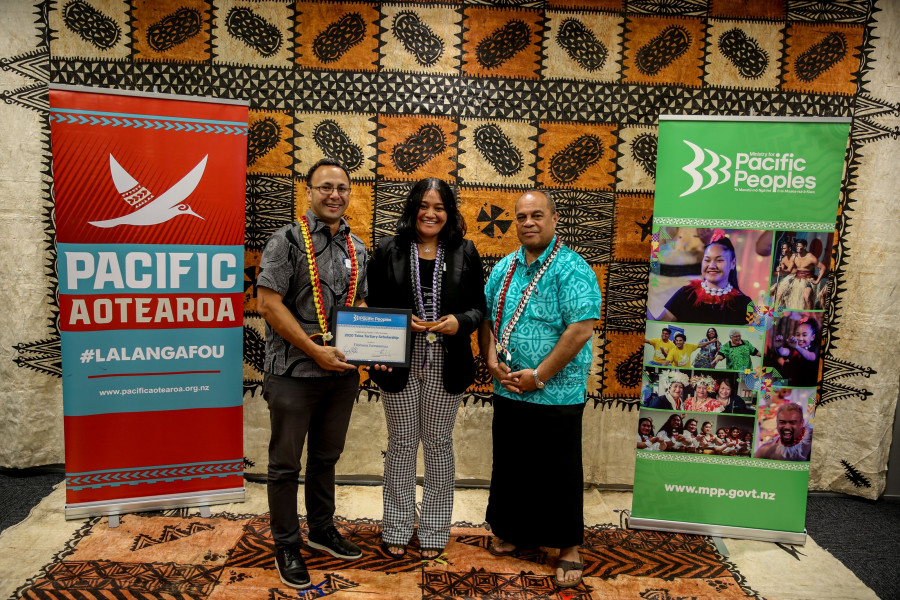STEM pathway is no place for self-doubt
STEM pathway is no place for self-doubt

Filomena (Mena) Vaimasenuu-Welford says from her experience, self-doubt and the sense of inadequacy which can cloud a minority student’s university journey can become overwhelming.
As a Pacific woman studying her Postgraduate Diploma in Science specialising in Biological Sciences, Mena knows the meaning of being in a minority group.
The STEM (Science, Technology, Engineering, Mathematics) areas traditionally lack both Pacific and female participants, but with the likes of the Ministry for Pacific Peoples Toloa Programme, this dynamic is beginning to change.
Mena is one of this year’s 13 Toloa Tertiary Scholarship recipients, from around New Zealand.
Although unsure about the career path she wanted to take, the determined young woman says she knew it would be in the STEM fields.
Of Samoan descent and raised in South Auckland, Mena attended St Kentigern College with the aid of an Aspire Scholarship, before starting a Bachelor of Science, at the University of Auckland.
“It took some time to decide what I wanted to do to be completely honest,” Mena says.
“I originally enrolled into a Bachelor of Science majoring in Biomedical Science with the intention of becoming a Surgeon but after my first semester, I realised the papers I would have to take to make it into medical school weren’t actually aligned with my science interests.”
As she still had a strong fascination with the biological world, Mena switched to a Biological Sciences major.
“It was only in my last year of my degree when I took a Marine Science paper out of interest and this sparked a deep intrigue of life in the ocean.
“So, fundamentally I’m interested in many facets of Biology, but I aim to apply all this knowledge in a marine context.”
Determined tocomplete a PhD in Biological or Marine Sciences within the next five to six years, Mena interned at Cawthron Institute last summer, where she focused on understanding the physiological responses of shellfish (mainly our endemic green-lipped mussel) to aerial exposure.
“After this experience, I’m excited by the prospect of becoming an Aquaculture Scientist where I’ll get to apply my university knowledge in an area that will facilitate New Zealand economic success.
“However, from an academic perspective, I am also interested in the distant future of ultimately progressing to becoming a Professor in Marine Biology.”
Mena firmly believes future improvements for Pacific involvement in STEM lies with young people.
“My younger Pacific peers are the key to ensuring long-lasting Pacific involvement and retention in STEM, and it is important they can see they are being represented,” she says.
It can be daunting being part of a department where you do not feel like you belong, because staff do not look like you, she adds.
Mena is a Teaching Assistant and Academic Tutor through the University of Auckland’s Tuākana programme, which provides her with the opportunity to work directly with her fellow Pacific students and reassure them through their academic journeys.
“By being an active member of the Biological Sciences Department, and being visible to upcoming Pacific students, I hope to inspire our students to set their aspirations beyond just passing a course, just getting through the year.
“Right now, I want to and think it’s important to facilitate an environment on campus where Pacific students feel like they can achieve, succeed, and most importantly deserve to do so.”
Pacific history is riddled with triumphs in discovery, innovation, and creativity; often coupled with an inspiring sense of adventurous spirit.
“To me, these are key qualities many of my scientific academic inspirations display and serve as a strong reminder of how the overarching aims of STEM: promoting inquiring minds, logical reasoning and collaboration, are intrinsic to us,” Mena says.
“Pacific people make up a significant proportion of New Zealand’s population and so our absence from these fields is detrimental for these fields to be operating at their full potential.”
